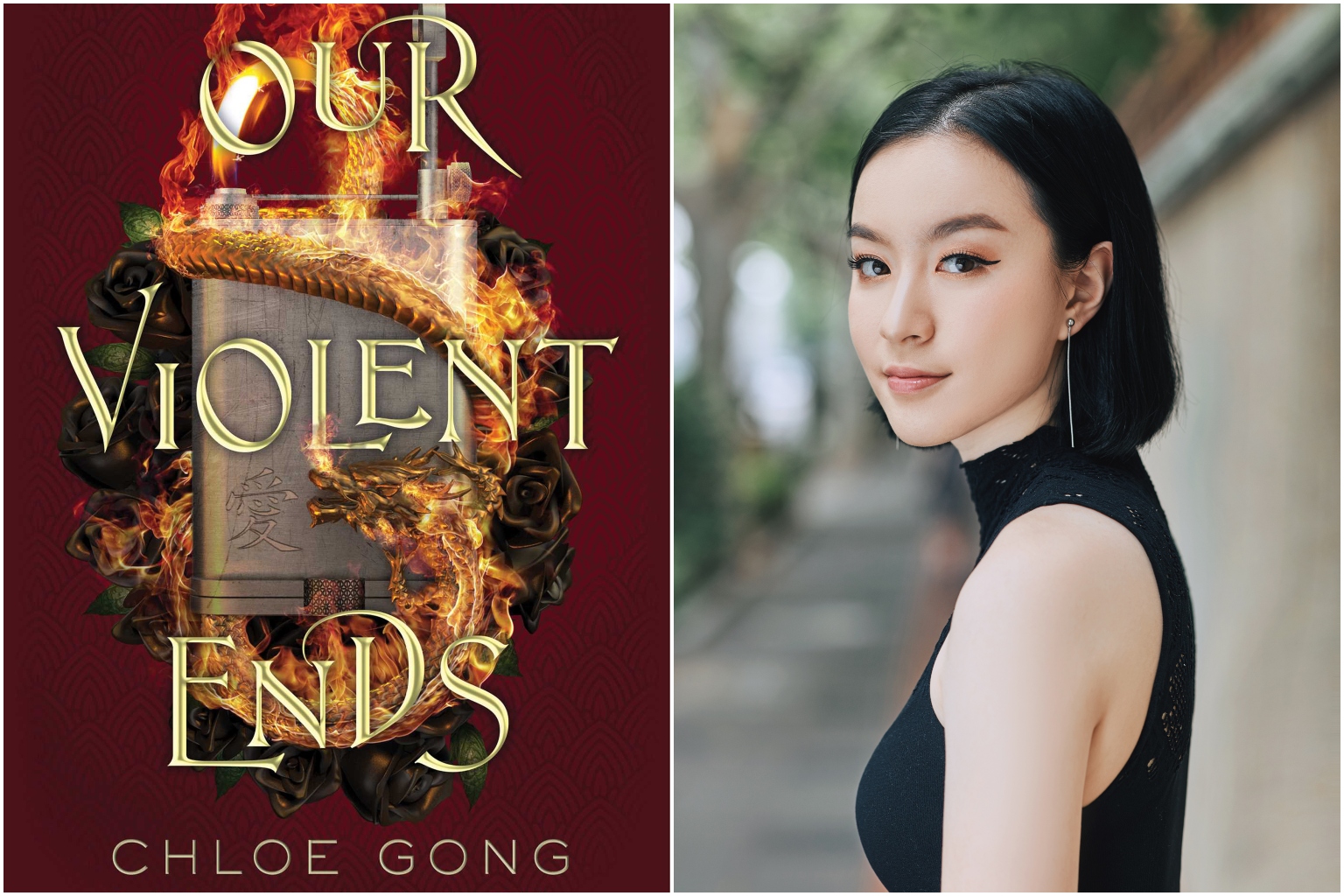Book review: Kiss kiss, bang bang in 1920s Shanghai Romeo And Juliet
Sign up now: Get ST's newsletters delivered to your inbox

Chloe Gong's Our Violent Ends begins with a shootout in the middle of a crowded theatre in Shanghai.
PHOTOS: SIMON & SCHUSTER, JON STUDIO
Follow topic:
Our Violent Ends
By Chloe Gong
Young adult/Simon & Schuster/Paperback/494 pages/$21.94/Buy here/Borrow here
3 out of 5
Young adult/Simon & Schuster/Paperback/494 pages/$21.94/Buy here/Borrow here
3 out of 5
As befits its title, Our Violent Ends begins with a shootout in the middle of a crowded theatre in Shanghai. From then on, the action pretty much never stops.
It is Shanghai-born, New York-based Chloe Gong's follow-up to her debut novel These Violent Delights (buy here, borrow here), a retelling of Shakespeare's tragic romance, Romeo And Juliet, set in 1920s Shanghai.
The star-crossed lovers here are Roma Montagov, heir to the White Flowers Gang, and Juliette Cai, whose father rules the rival Scarlet Gang.
In the first instalment, the couple are estranged after a traumatic incident turns them against each other, but they work together to save the city from a monster that spreads a deadly epidemic.
Gong covers a lot of ground in the second book of the duology. Controlled by an unknown force, monsters - yes, plural - are terrorising the city again, this time in a more intelligent, targeted manner.
War and unrest simmer as a violent clash between the nationalists and communists looks imminent.
The blood feud between the White Flowers and Scarlets escalates after Juliette seemingly kills one of Roma's best friends. There are spies, betrayals, faked deaths, real deaths and scandalous love affairs.
Some of these threads are better handled than others. For example, Tyler, Juliette's power-hungry cousin who plays an antagonist in both books, has an emotionally rich arc. Despite being a supporting character, he is well-drawn and sympathetic.
The monsters, however, are not as compelling. While they felt well-integrated into the plot of the first book, this instalment simply has so much going on that the monsters feel like an afterthought, overshadowed by other plot lines.
And in a sprint to wrap up the story, the latter half of the book is stacked with twists and reveals - some good, some too convenient - to the point of distraction. The last stretch of the story could have been told in a tighter, more straightforward manner.
What the book does well is convey the sense of chaos enveloping Shanghai at the time.
Gong works in historical events like the Shanghai massacre of 1927, a violent suppression of communists led by Kuomintang forces supporting Chiang Kai-shek. Through her characters, she highlights how ordinary people become collateral damage in political games.
But it is love the duology ultimately hinges on. The slow-burn romance between Roma's friends Marshall and Benedikt finally goes from subtext to text here. Their climactic moment, when they finally admit they have more-than-friendly feelings for each other, is very satisfying.
As for Roma and Juliette, there is no shortage of confrontations, angst and dramatic declamations about how they will never stop loving each other. These are over-the-top, but what readers who loved the first book have been waiting for.
This is, after all, a Romeo And Juliet love story between two teenagers who wield guns. Subtlety would be too much to ask for.
If you like this, read: The Weight Of Feathers by Anna-Marie McLemore (Wednesday Books, 2017, $18.94, buy here, borrow here), another Romeo And Juliet retelling, this time about two feuding families of travelling performers with magic in their blood.
This article contains affiliate links. If you buy through these links, we may earn a small commission.

